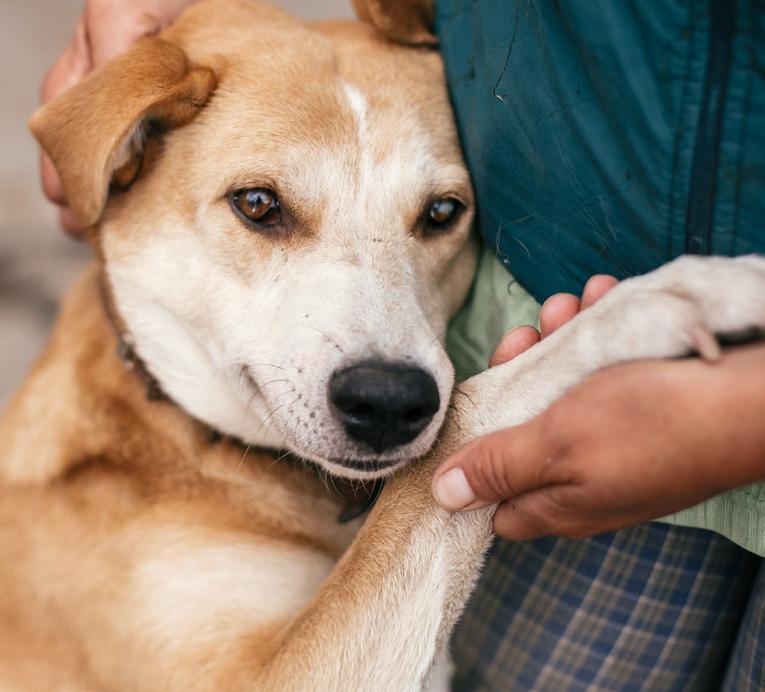
2 minute read
PET NEWS - JUNE 2020
WORDS MARISA CUTILLAS
COOL MUSIC TO STREAM FOR PETS

Humans aren’t the only ones who obtain pleasure from music; so too do cats, dogs, and even iguanas – at least Spotify seems to think so! The streaming service has released playlists for various pet categories – including hamsters and birds! The provision is based on research showing that pets can, indeed, feel more relaxed after listening to adapted tunes. Psychologist and Professor, Neil Evans, explains, “Providing dogs (for instance) with varied auditory enrichment can be used to reduce stress and anxiety over longer periods of time. When dogs have appropriate auditory enrichment they may bark less, lie down and sleep more, and their body enters into a more relaxed physiological state.”
DON’T FORGET YOUR PETS’ FLEA TREATMENT

Because of the COVID-19 scare, says a new UK study, one in 10 people have found treating their cats and dogs for parasites more difficult and 15% say they are finding it hard to get to their vet or pet shop during confinement. Note that the same treatments are easily available online and by staying ahead of things, you can avoid the ‘flea explosion’ that is predicted for this year owing to a blend of high temperatures and a failure to treat pets. Because fleas have four main stages in their life cycle, the total cycle can last for various weeks. Therefore, missing just one treatment can make a big difference to your pets’ health.
DOGS ARE INNATELY CONNECTED TO HUMANS

Pet dogs are highly receptive to their owners’ commands and cues, but if you thought this was due to training, think again! Research published in the journal Frontiers showed that 80 per cent of untrained stray dogs successfully followed pointing directions to a specific location. This suggests that there is a powerful innate connection between humans and canines.
DOGS CAN HAVE ANXIETY TOO

Anxiety is one of the most common mental conditions among humans, but did you know that animals, too, can suffer its effects? A recent study by scientists at the University of Helsinki in Finland (involving over 13,000 dogs) found that 72.5% show traits such as fear of heights and surfaces, separationrelated distress, inattention, and noise sensitivity. Fireworks are one of the biggest culprits; they cause intense reactions in around 26% of all dogs. Dogs can also be scared of strangers, new situations, and other dogs. Separation anxiety and aggression are less common; they only affect between five and 14 per cent of pooches.










